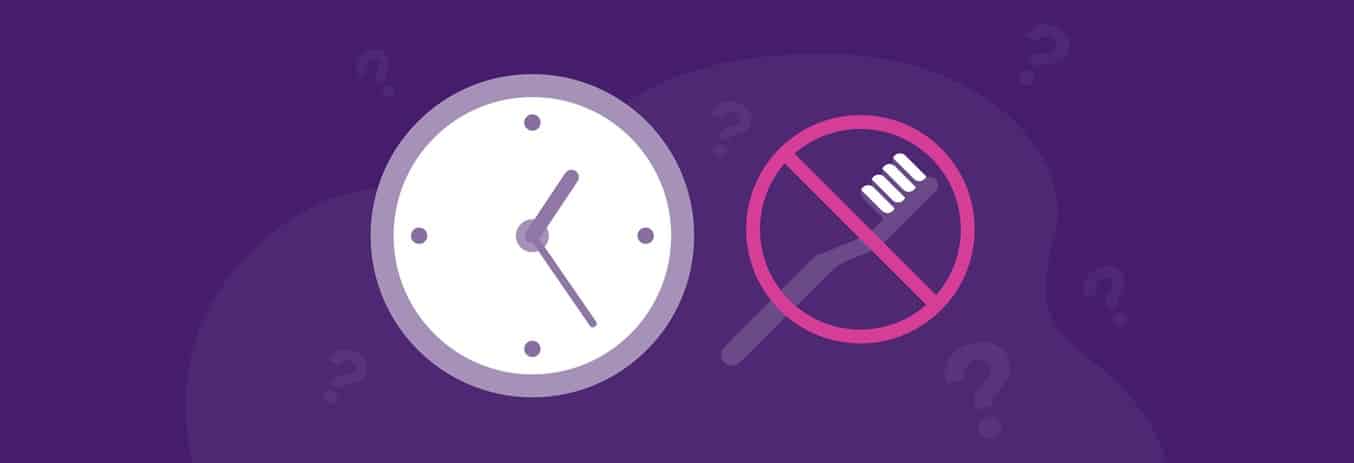Gum Boils

A gum boil isn’t a pleasant topic to discuss, and it’s even less pleasant to have. According to a report published by the IOSR Journal of Dental and Medical Sciences, they are the third most common dental emergency.¹ But do you know what they are or what you should do if you have one? Read on to find out!
What Is a Gum Boil?
A gum boil is an abscess (a contained collection of pus) that looks like a pimple or bump on your gums. They are very common and typically caused by bacteria that are often — but not always — the result of gum disease or tooth decay. Sometimes, gum trauma, gum surgery, or a weakened immune system may cause a gum boil. Rarely is it a sign of oral cancer.
The two most common types are:
- Periapical Abscess: Often develops within the tooth but hasn’t broken through the gum yet.
- Periodontal Abscess: Often develops deeper in the gum tissue.
Aside from its unsightly appearance and possible discomfort, a gum abscess is a potentially serious infection that should not be left untreated.
Symptoms
In addition to pain and tenderness, other possible symptoms are:
- Bleeding from the affected area
- Fever
- Nausea
- Earache
- Bad breath
- Heat and cold sensitivity
Treatment Options
If you have a gum boil, you’ll need to see your dentist for treatment. At-home treatments will help ease your symptoms until you seek professional care, but they won’t treat the root cause.
At-Home Treatments (to Ease Your Symptoms) Include:
- Rinsing with saltwater
- Rinsing with hydrogen peroxide (mix 3% hydrogen peroxide with equal parts water)
- Applying tea tree oil to the affected area
- Rinsing with garlic juice (if you can stand the taste!)
Dental Treatments (to Target the Cause) Include:
- Prescribed antibiotics
- Deep cleaning (if you have unhealthy gums)
- Root canal (if you have tooth decay)
Can a Gum Boil Heal On Its Own?
Even if you have a gum boil that appears to be healing, we recommend you still see your dentist. That’s because you’re only treating the symptom, not the cause, and the abscess will likely return. If left untreated, the infection can spread to other parts of your body, so it’s important you schedule an appointment to see your dentist as soon as you realize you have one.
How Do I Prevent Bumps on my Gums?
Because a gum abscess is usually caused by an infection, practicing good oral hygiene is your best preventative measure. Also, be sure to visit your dentist for regular checkups, which can pinpoint undiagnosed issues that might lead to a gum boil.
Good oral hygiene habits include:
- Brushing twice daily and flossing once daily
- Use the proper kind of toothbrush
- Avoiding smoking
- Avoiding high amounts of sugar and starches
Am I at Risk?
You’re at risk of a gum boil if you have poor dental hygiene, which causes bacteria to build up in your mouth. However, developing a gum boil doesn’t necessarily mean you have poor dental hygiene. There could be other causes, as described above. That’s why it’s best to see your dentist, who will determine and treat the cause.
Is a Gum Boil Painful?
They are tender and can result in throbbing pain and fluctuate in severity. You might find it uncomfortable to brush your teeth, chew on food, or drink hot and cold liquids.
Can I Pop a Gum Boil?
If you rinse with a solution like saltwater, the gum boil might come to a head and pop on its own. That’s fine if it does, and it may provide temporary relief until you see the dentist. Just know it won’t be pleasant and will likely leave a bad taste in your mouth — literally. Also, be sure to keep the affected area clean (Rinse with saltwater after it bursts and don’t touch it.) If it doesn’t pop, your dentist will drain the abscess.
Summary
A gum boil might seem like a temporary nuisance, but it’s still an infection that could potentially be dangerous. Remember to see your dentist as soon as possible if you have one, even if it appears to be healing. A gun boil is often simple to treat, and taking action could save you grief in the long run.
References
Singh, A., Saxena, A. The periodontal abscess: A review. academia.edu. Retrieved November 8, 2023, from https://www.academia.edu/27233363/The_periodontal_abscess_A_review.


